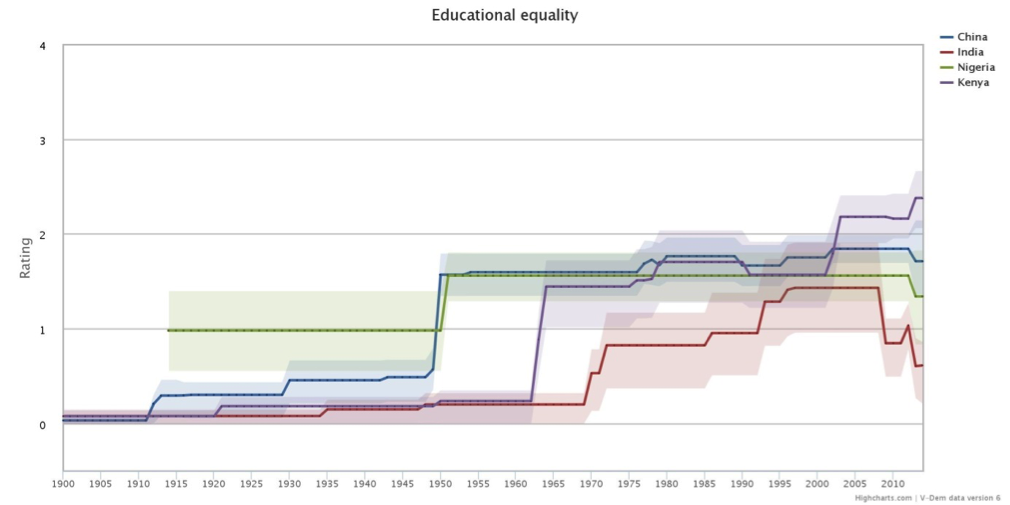Educational Equality
By: V-Dem Staff
Aug 31, 2016
Education plays an important role in the economic growth of a country and also in the attainment of egalitarian democracy. This week’s graph looks at the development of equality in education in countries with some of the fastest growing economies in the world.
China, India, Nigeria, and Kenya are currently among the fastest growing economies in their regions, as well as the world. An educated workforce is crucial to their development and economic growth. How do they fare in terms of providing equal educational opportunities to their citizens?
The V-Dem Educational Equality Indicator measures to what extent high quality basic education – an education sufficient to enable them to exercise their basic rights as adult citizens – is guaranteed to all. In this chart we can see a similar pattern of development for these four countries. They all started at very low ratings for educational equality, though all countries generally improved over time – sometimes rapidly, and at other times more gradually. Since the 1970s, China, Nigeria, and Kenya have had relatively stable scores of around 1.7, with India lagging behind. However, in recent years we see a divergent trend with Kenya making strong advancements since 2000 and India falling behind.
Kenya’s leap forward starting from 2000 onward could be explained by the implementation of the Education for All program initiated by the UN. As part of this program, Kenya introduced free basic education in 2003 and took other steps to ensure educational equality for its citizens.
In addition to educational equality, what other components contribute to egalitarian democracy? Or, how does your country perform in educational equality? To get answers for these questions you can use the online analysis tools on v-dem.net.


